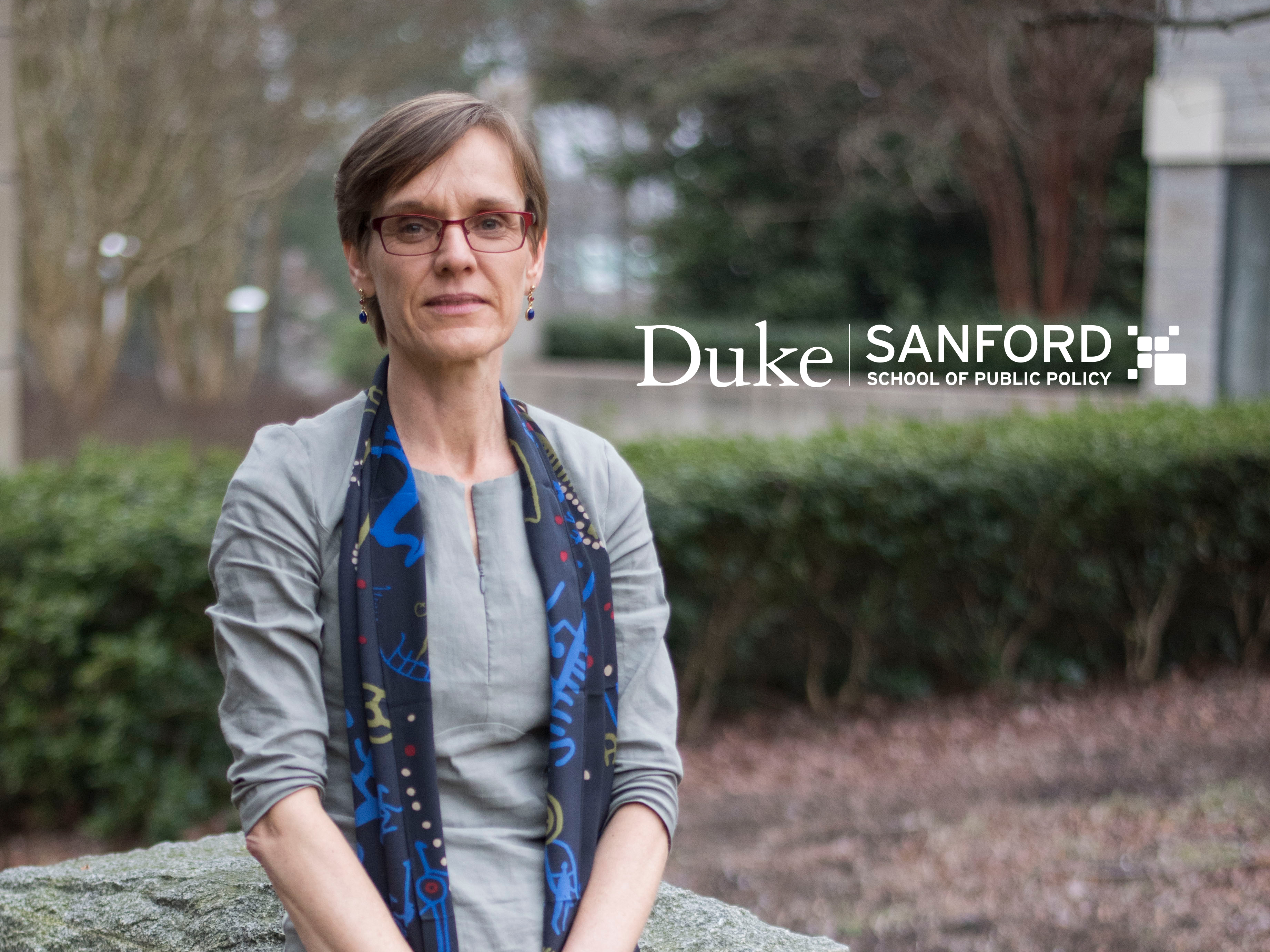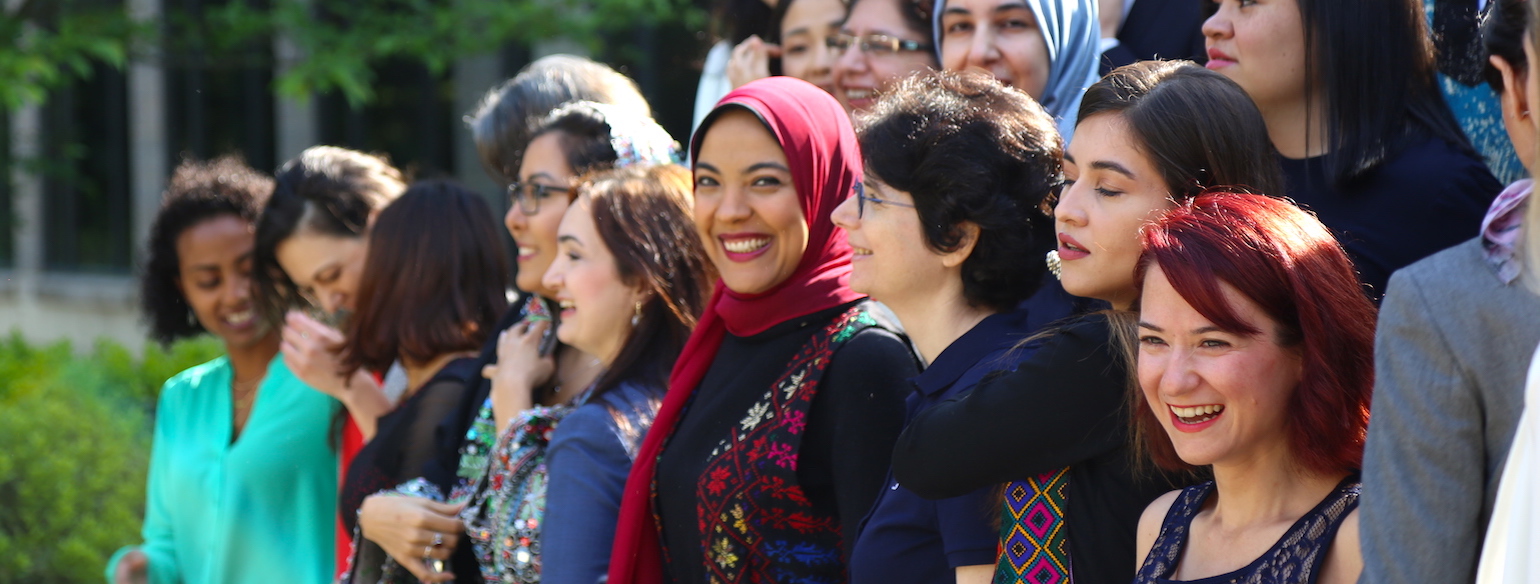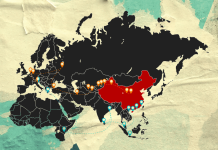Interview with Judith Kelley, Dean of the Sanford School of Public Policy at Duke University.
The Sanford School of Public Policy at Duke University is one of America’s leading schools of public policy located in Durham, North Carolina – a city with a unique mix of rich history, diverse culture, and vibrant research, medical and arts communities. With its unique and world-class interdisciplinary policymaking degree programs, Sanford was recently recognised as the top graduate school in the southern U.S. in its core specialty, public policy analysis. Sanford‘s eclectic and hands-on approach towards research and policy formulation helps scholars to be transformational leaders who are committed to innovative policy solutions to create positive change. To understand more of Sanford’s core values, we sat down with Sanford School of Public Policy’s Dean Judith Kelley.
Good day, Dean Kelley! You are known for your research on democracy and human rights, international relations, and human trafficking, to name a few. Can you describe how an expert political scientist and academic leader like you would jumpstart a day? Do you have particular morning routines?
I am fortunate to live close to my office, so part of my routine is riding my bicycle to work. The fresh air and regular morning exercise energise me both physically and mentally.
Just recently, the Sanford School of Public Policy was recognised as one of the top U.S. graduate schools, and ranked fifth in its core specialty, public policy analysis. What makes Sanford’s public policy programs stand apart from other graduate schools? What are the focuses of the curriculum and the fundamental components of your program?
One of the biggest strengths of our graduate programs is our outstanding faculty. Not only are they world-class scholars, they also are actively engaged with the policy world and dedicated to providing excellent teaching and mentoring to our students. Our program provides students many opportunities for collaborative teamwork, as well as interaction with actual clients and current policy problems. Our students can pursue a wide array of policy interests, but all of them graduate equipped with both quantitative and qualitative tools of analysis.
What facets of the curriculum do you personally view as immensely useful in generating effective solutions to crises related to international relations and public policy? What other components of the program or areas are in development?
A key component of our program is training in ethics. Many international disputes are tied to differences in value judgments – decisions about what priorities are most important at a particular point in time to a nation, a region, or even to humanity as a whole – therefore, it is essential for policymakers to be able to understand why other cultures’ values may differ from their own without being incorrect. There are many other immensely useful elements, including economics, stakeholder analysis, project design and appraisal, and strategic management.
Cybersecurity is an area in which our program is growing. As the 2016 U.S. elections demonstrated, the potential for serious societal consequences due to information manipulation has never been greater.
One of the university’s values and principles is diversity and inclusion. How important is this doctrine in helping the Sanford School in its aspiration to be the leader in its field? How does fostering diversity in the community impact the formulation of public policies?
We believe diversity is essential to ensure the robust exchange of ideas – the exchange that is at the heart of Duke University’s efforts to advance human knowledge and understanding. And, just as intellectual discourse is richest when it includes many voices, public policies have the best chance for success when they are based on careful consideration of many viewpoints.
In present times of political uncertainty and social upheaval, the universities are major actors in the international environments and in shaping the future of governance. How does the Sanford School equip graduate students to cope with the complex economic and political dynamics, and address the demands of the increasingly multi-polar world?
At Sanford, we are fortunate to have an incredibly international student body, as well as alumni in more than 96 countries. Students work side by side with people whose experiences differ widely, and that kind of collaboration is an everyday part of an international affairs career. Collaboration to solve complex global policy problems starts with respect, tolerance, and active listening to all perspectives. These values and skills are critical to navigating complex contentious times like these – and the Sanford School works to both model and teach them.
The Sanford School’s graduate programs are uniquely designed to offer flexibility and allow students to explore and expand their skills. One academic requirement is to undergo an internship. How effective is this practical experience? Can you share a story of one of your successful graduates where they were able to utilise the internship experience in their own field of specialisation?
One student that comes to mind is Ichiro Toda, who graduated from our MIDP program in 1998. He was working for a Japanese government agency when he came in to the program, but he really wanted to expand his skillset and he took on an internship at the Inter-American Development Bank. He said the skills and experience he gained in those two months were enough to raise his profile at his workplace and, when he returned, he received a new assignment to work with the IADB. Years later, he actually got a position at the IADB, and is now in a senior position at the World Bank. He credits the internship with changing the course of his career!
Studying international relations and public policy is a complex and evolving topic that allows one to have a deeper understanding about the dynamics of relationships between countries. Can you share with us a particular example of a successful Sanford graduate who was able to translate the theory-based knowledge and apply it to solve real-world crises?
Our accomplished alumni hold influential positions around the world. They include the founder of The Global Fund for Children, a UNHCR humanitarian affairs officer working in Syria, U.S. Foreign Service officers fighting human trafficking, and the founder of a global nonprofit helping improve health-care access. One alum, Samir Nuriyev, is now the Chair of the State Agency on Housing Development in Azerbaijan and is using what he learned about economics, policy analysis, and service delivery to provide affordable housing for the people in his country.
With the rising economic inequality, destabilisation, populism, and political gridlock across all nations, what tools and strategies should the present and aspiring leaders of our society use to address these compounding challenges?
Being future-oriented and thinking imaginatively are essential today. Big problems call for big ideas. At the Sanford School, thinking big is in our DNA – our founder, Terry Sanford, challenged students to pursue “outrageous ambitions” for the greater good. Our students embrace and carry on that entrepreneurial spirit.
On a lighter note, it is important nowadays to have a balance of work and personal life. Amidst all your responsibilities as the dean at a prestigious university, how do you juggle your work and personal obligations?
Leading a policy school is a wonderful opportunity to help others succeed and to be part of important debates, but it is demanding and therefore it is absolutely essential to find ways to unwind. I love being outside, so I garden and hike. I also read novels, both as relaxation and a way to enhance my understanding of the lives of others.
From a political scientist’s perspective, what is an ideal society? And what does success mean to you?
I am not sure I know the answer to what an ideal society is, but I think I am with Churchill when he noted that, “Indeed it has been said that democracy is the worst form of Government except for all those other forms that have been tried from time to time …” As to what success means to me: It is having a part in helping others succeed. The faculty and the students of Sanford do great things and that, to me, is success.
Thank you very much, Dean Kelley. It was a pleasure speaking with you.
About the Dean
Judith Kelley, PhD, is Dean of the Sanford School of Public Policy at Duke University. A political scientist and expert in international relations, she studies how states, international organisations, and NGOs can promote political reforms within problem states. Her newest book is Scorecard Diplomacy: Grading States to Influence their Reputation and Behavior.































































